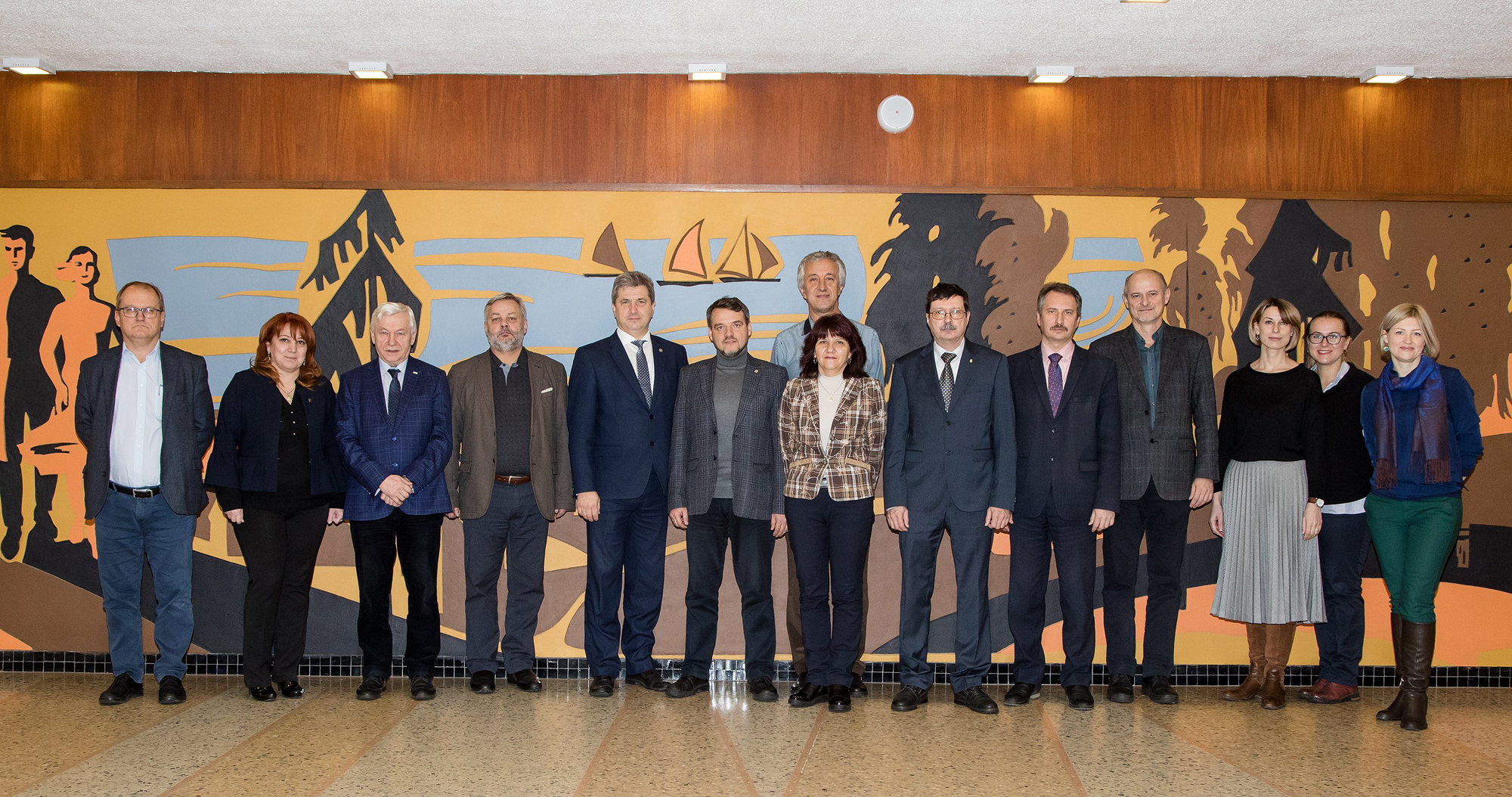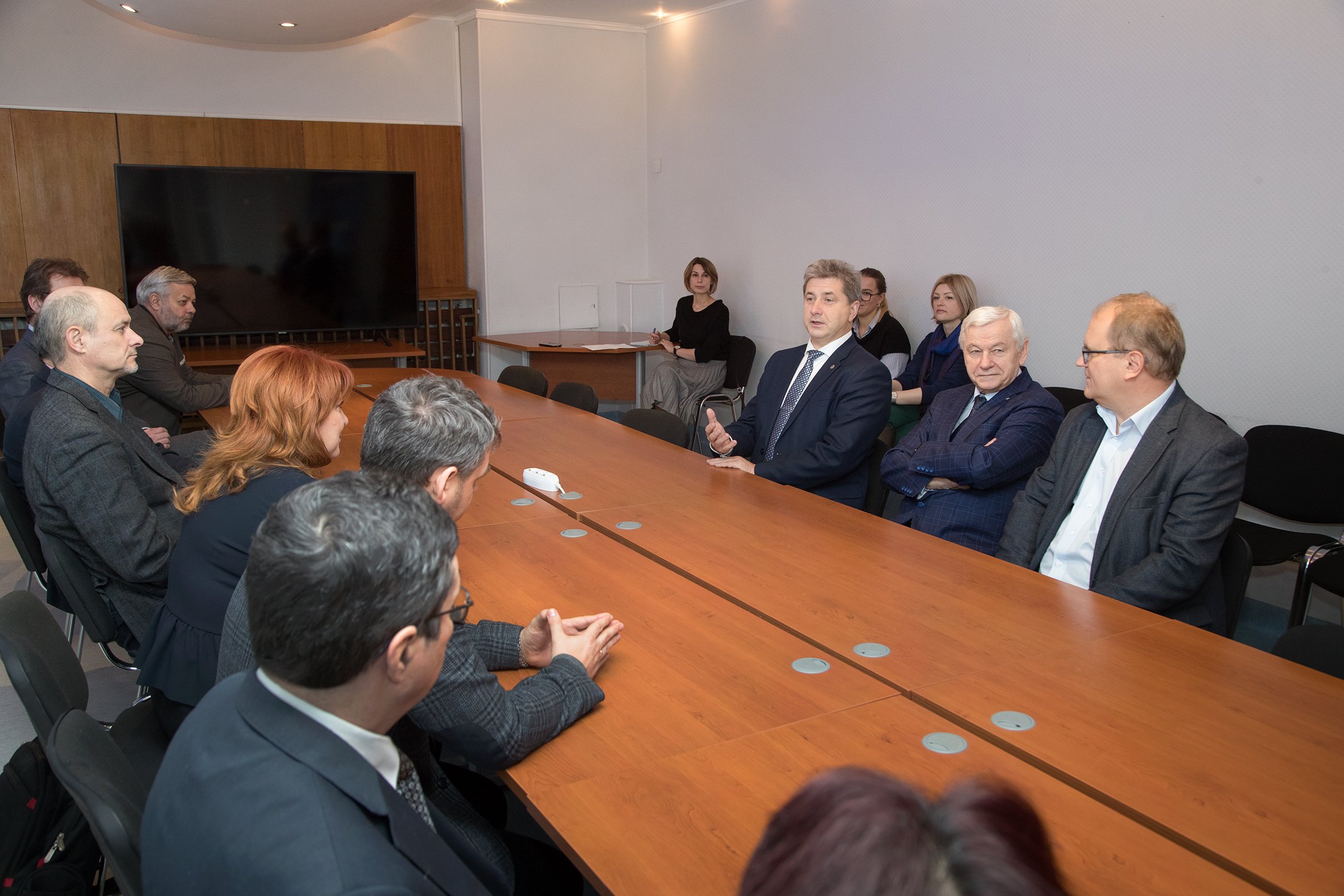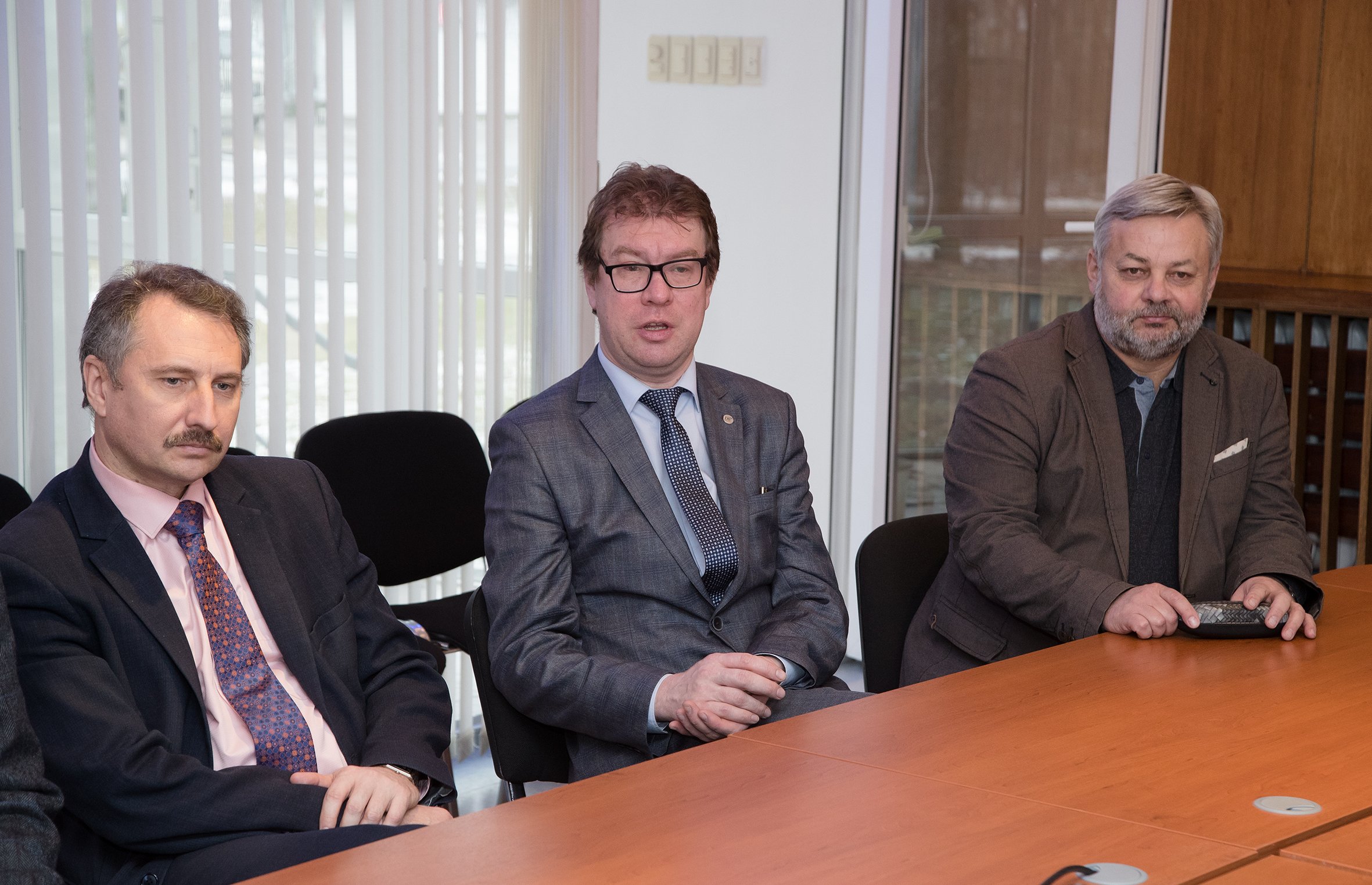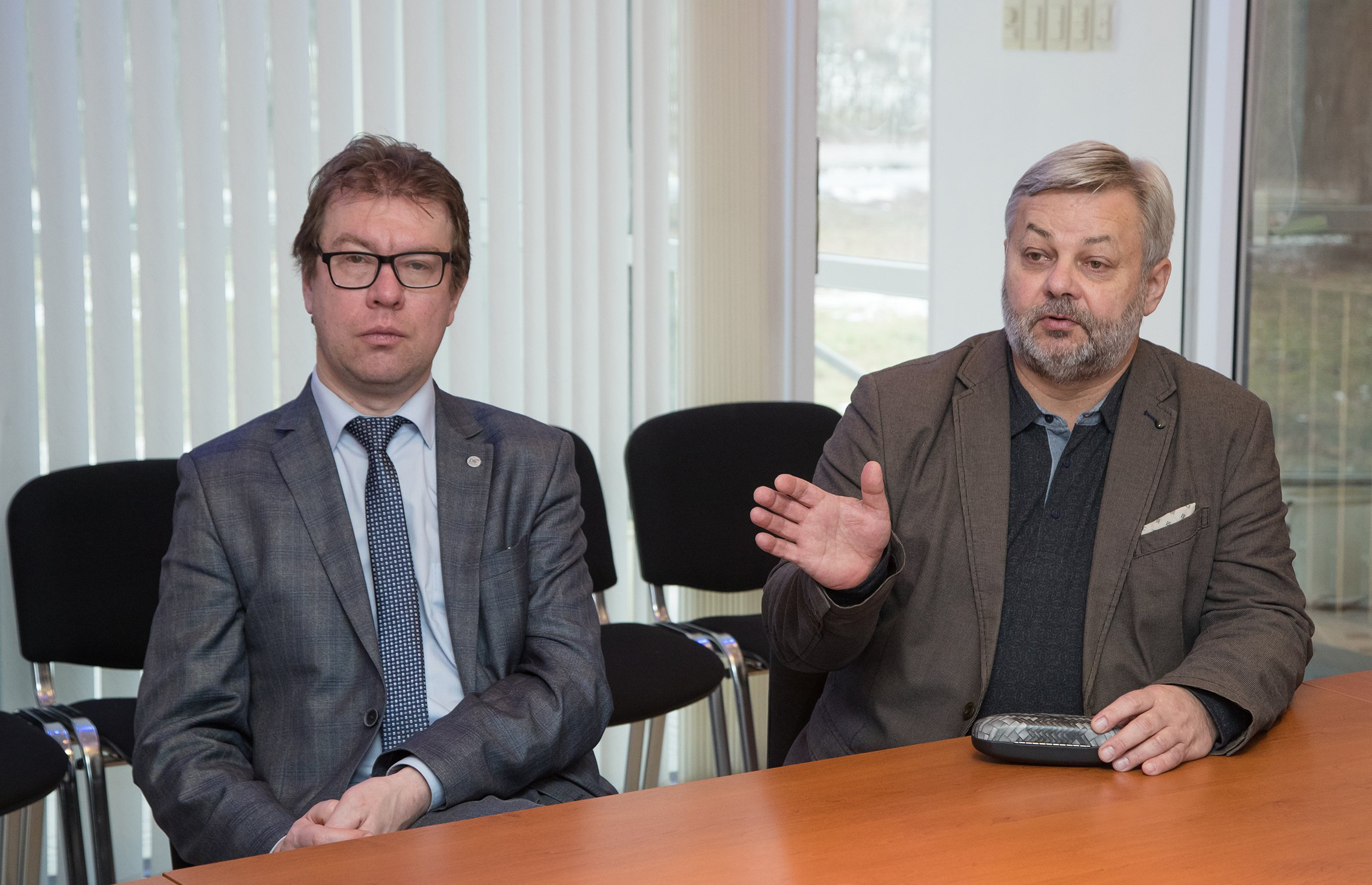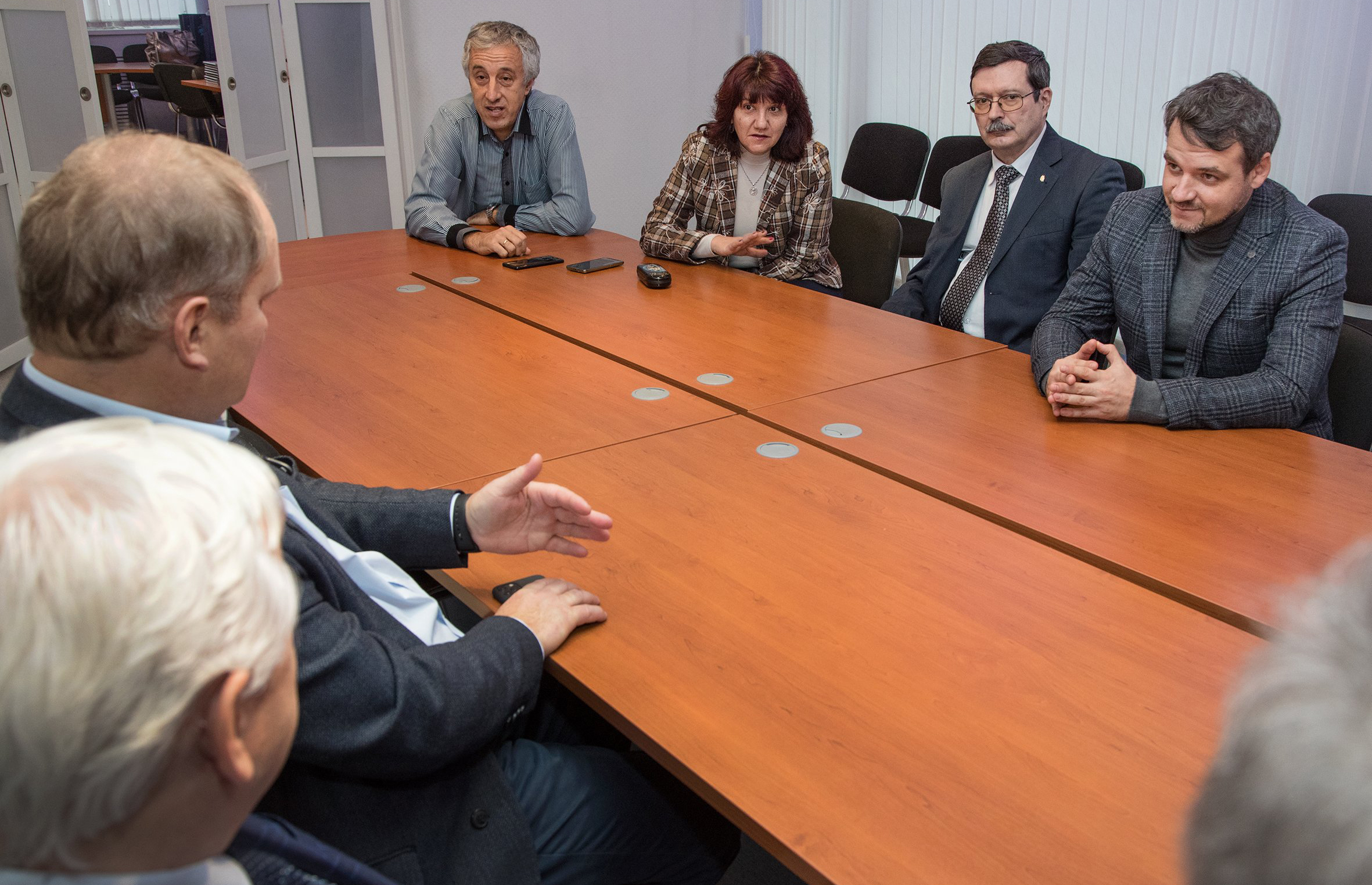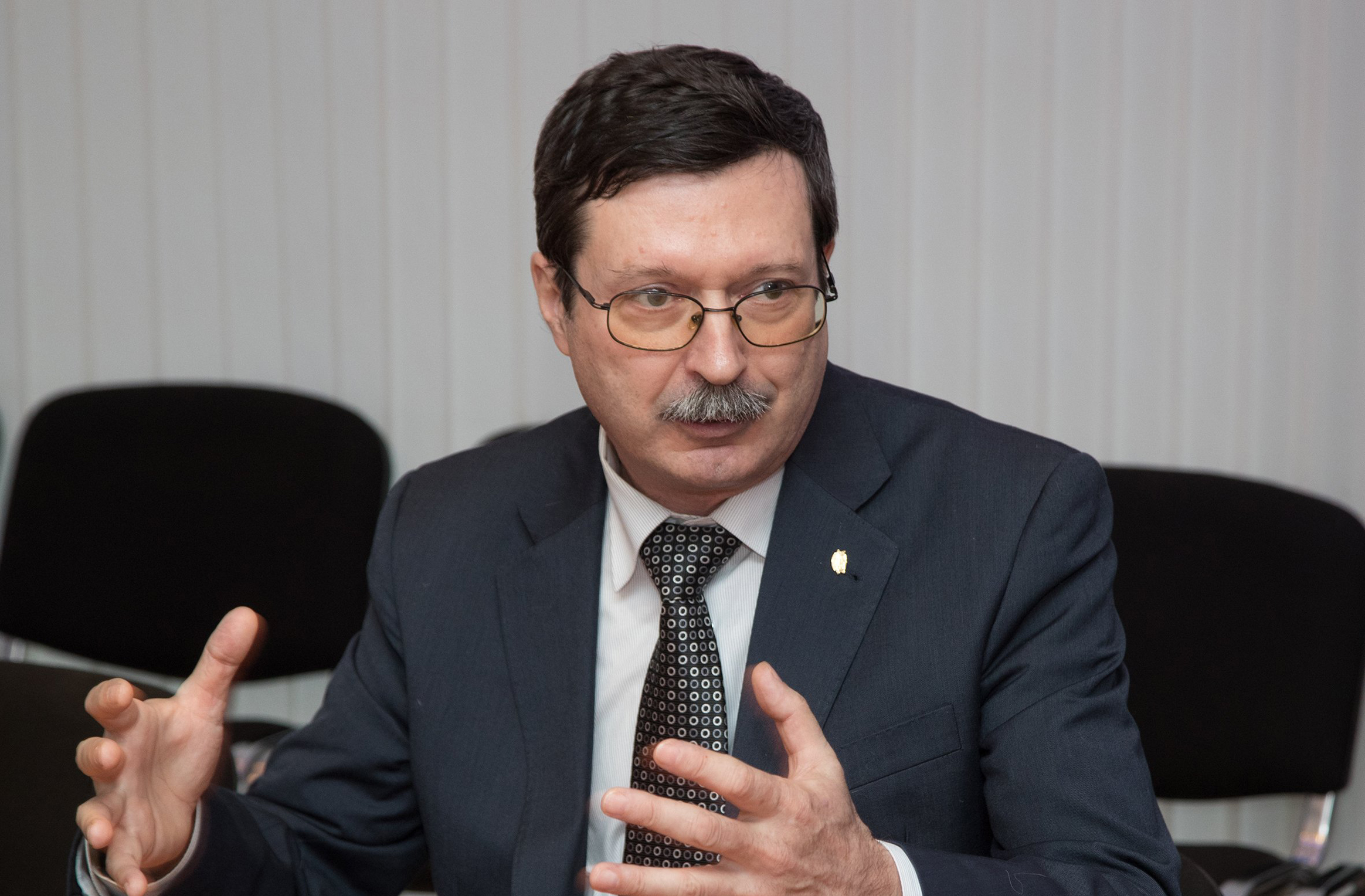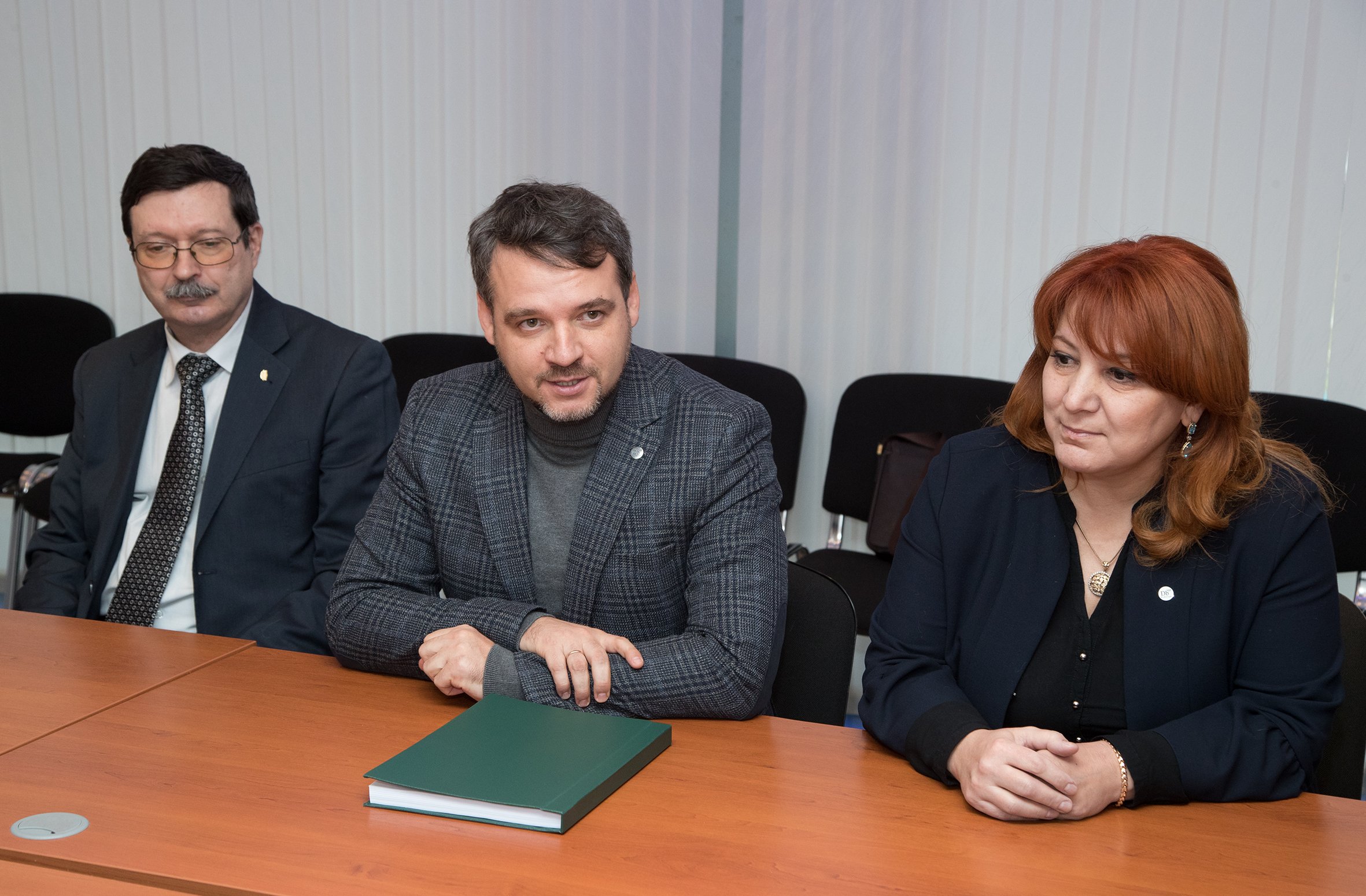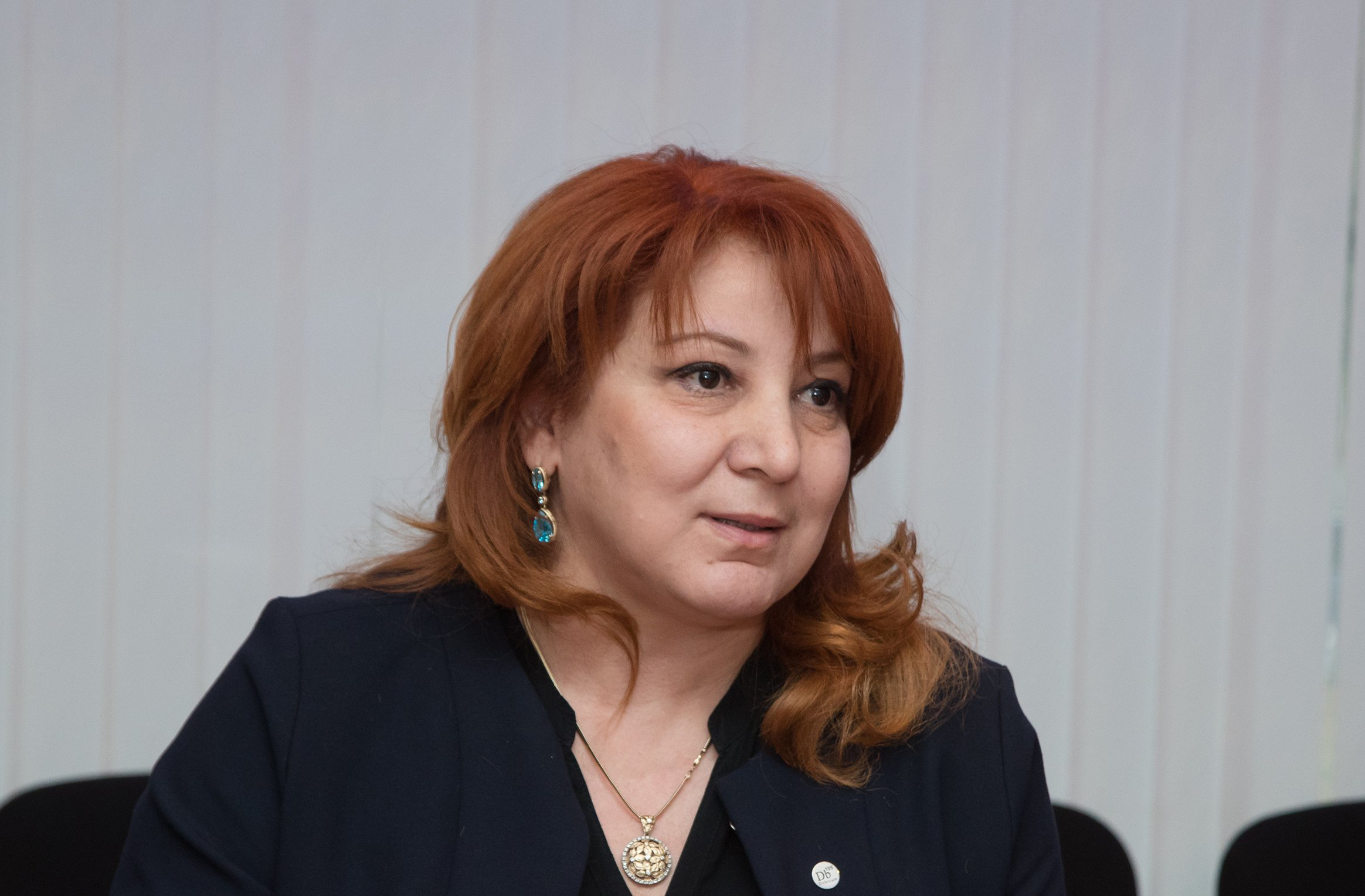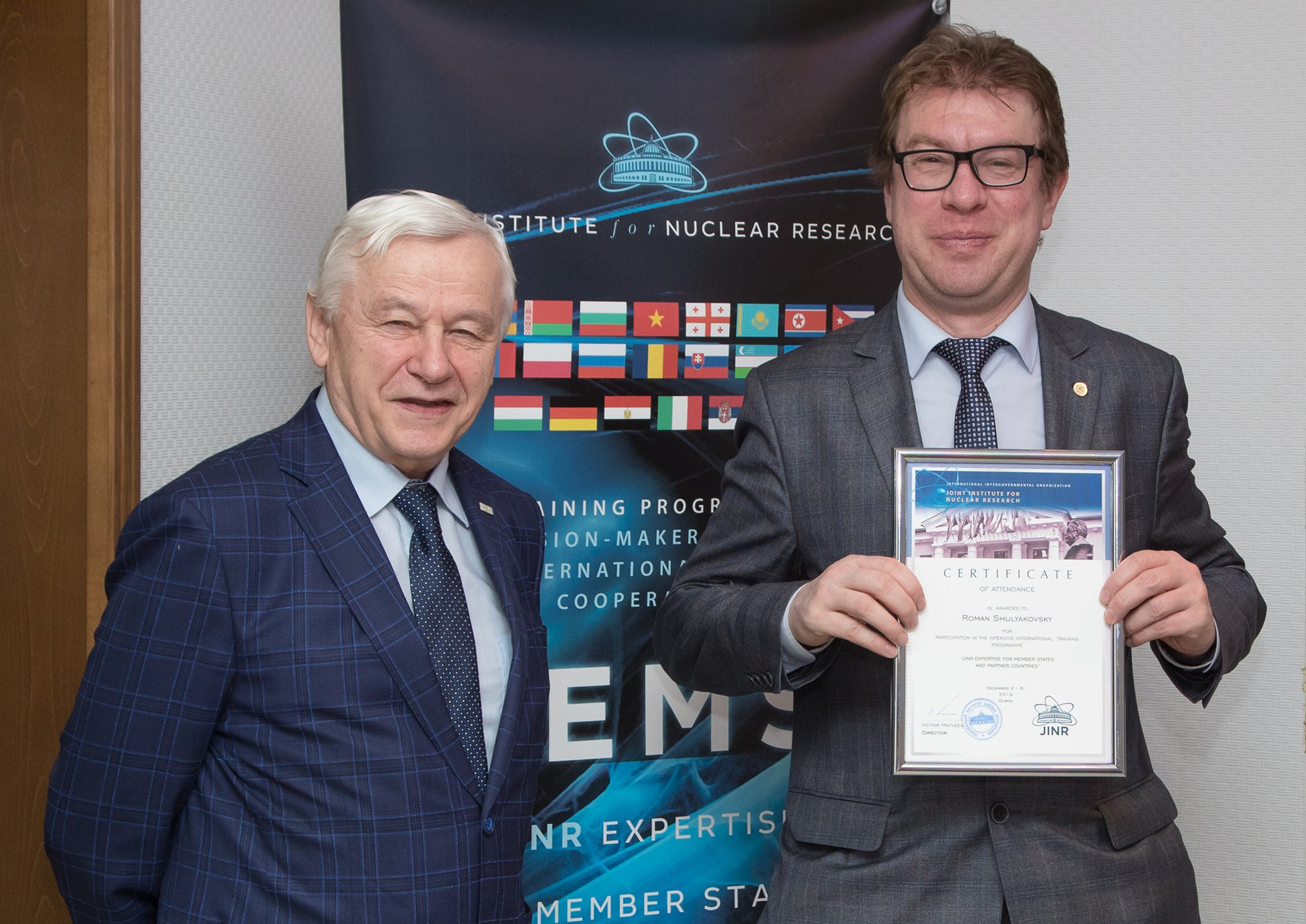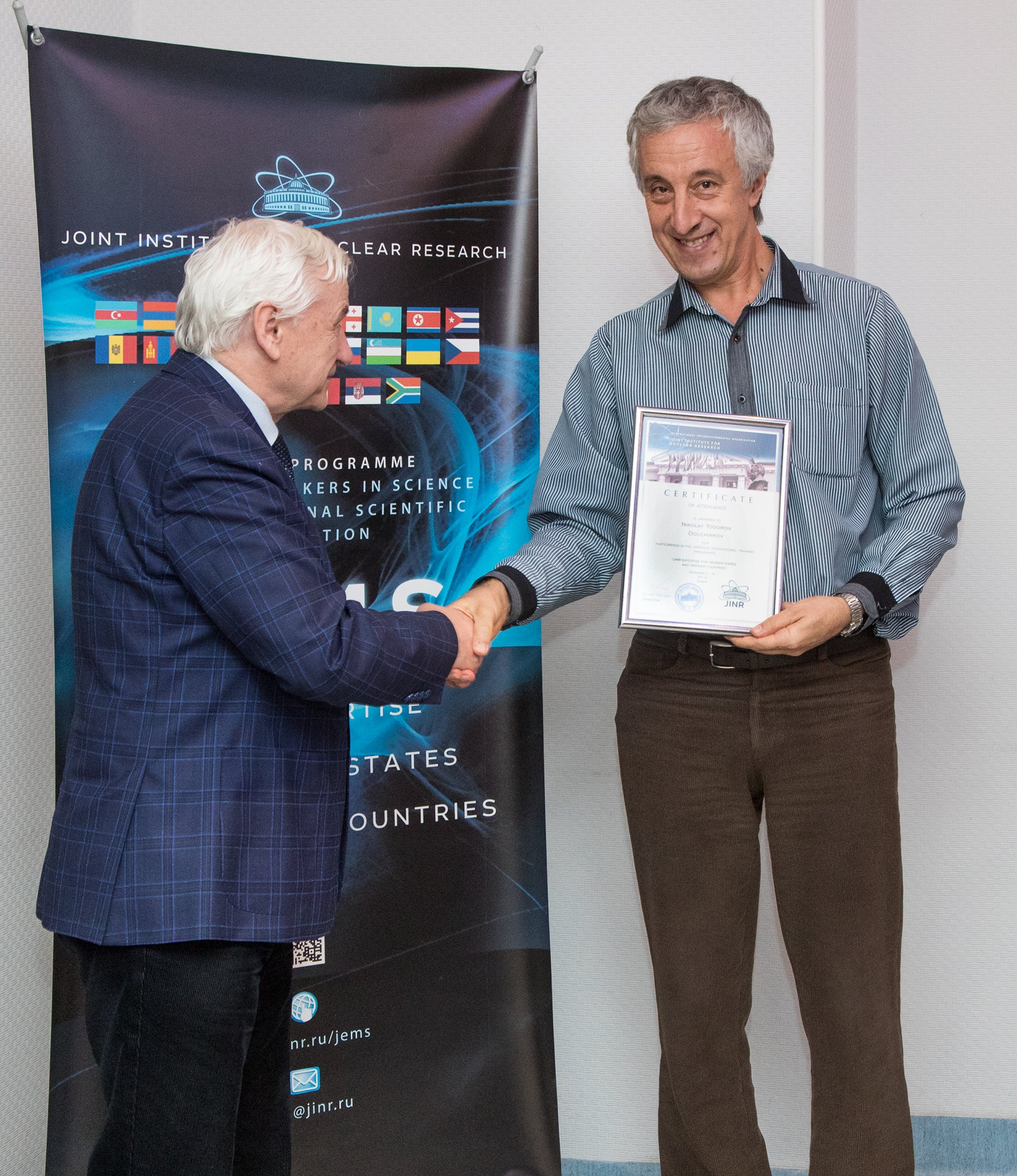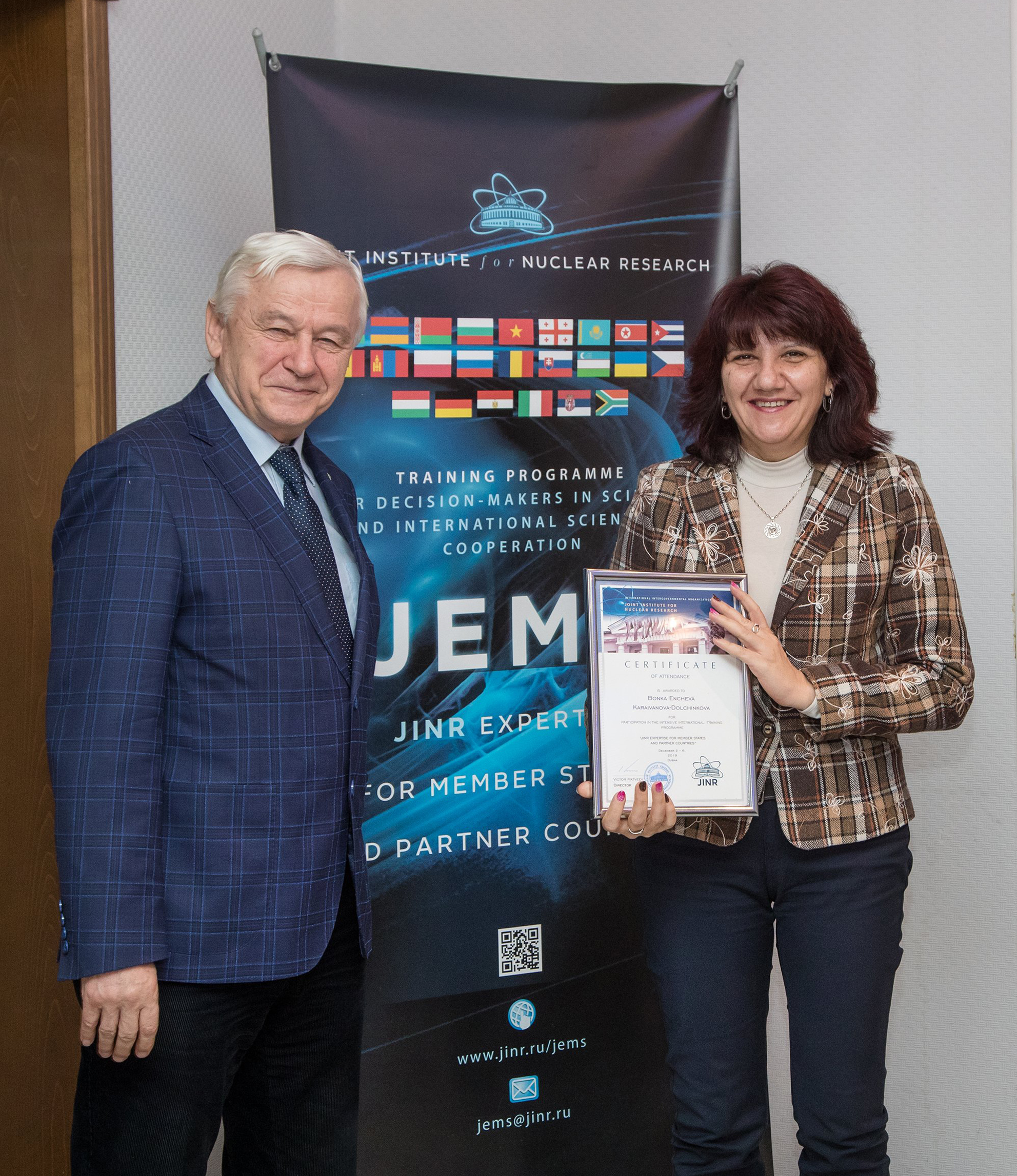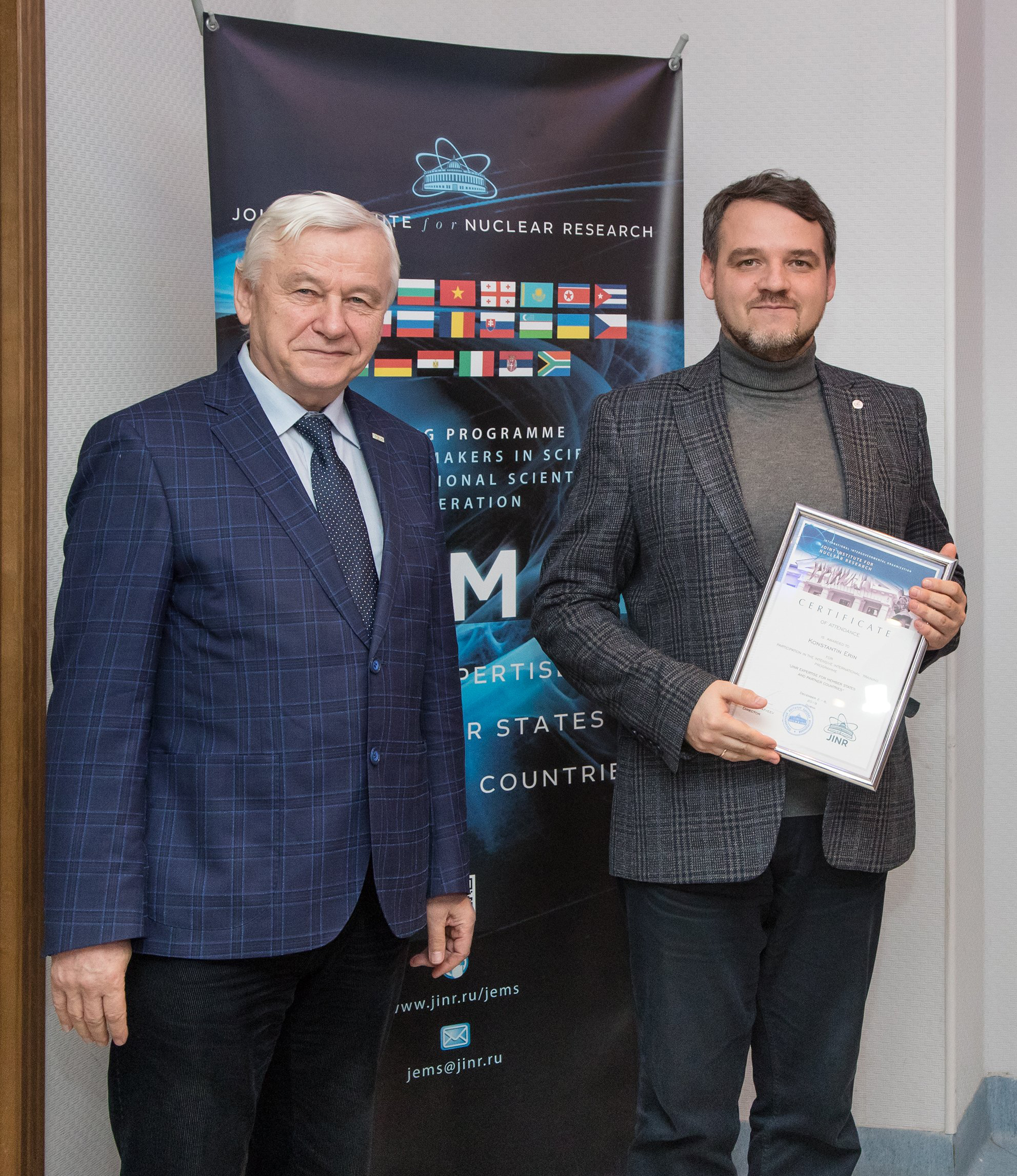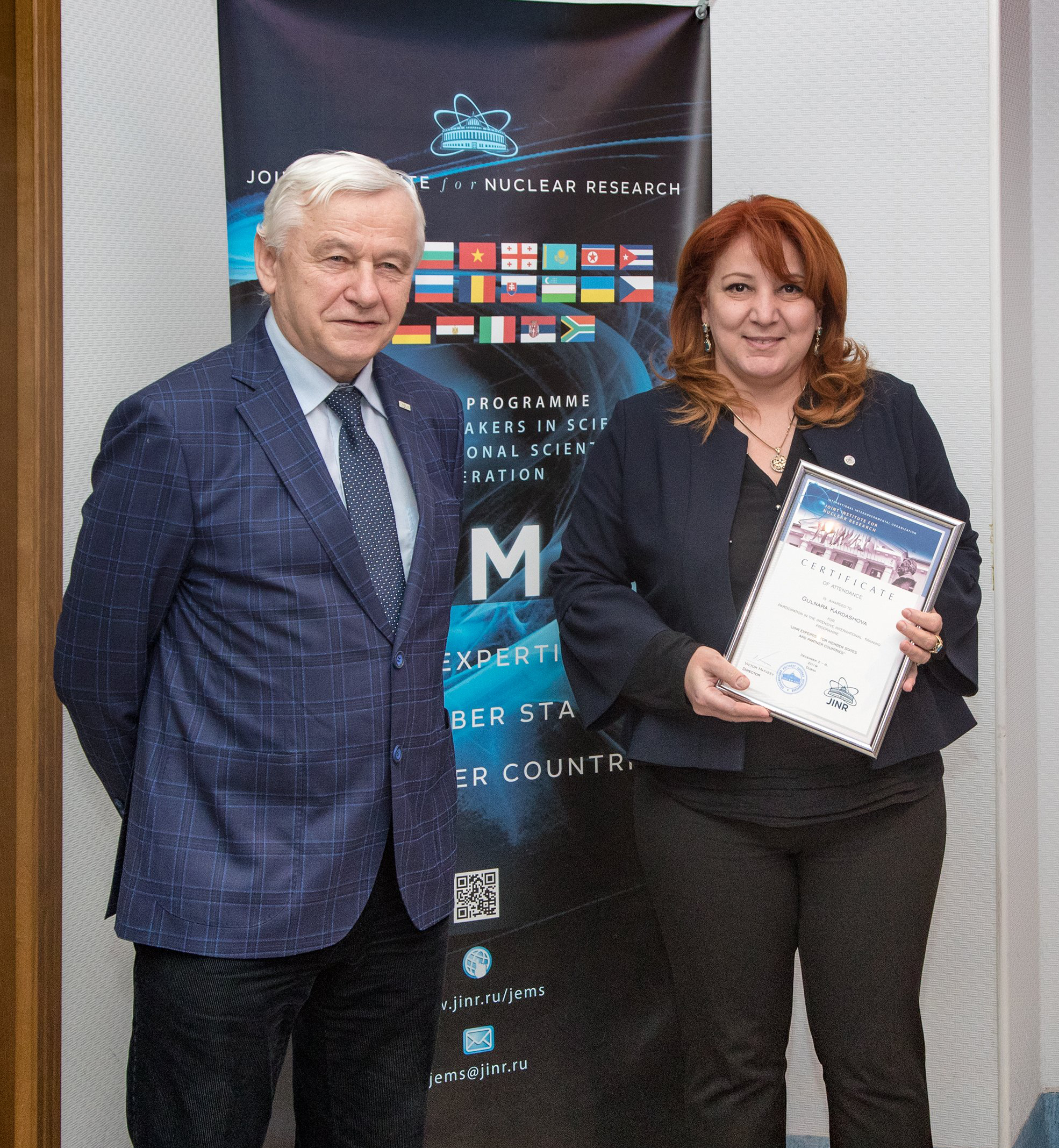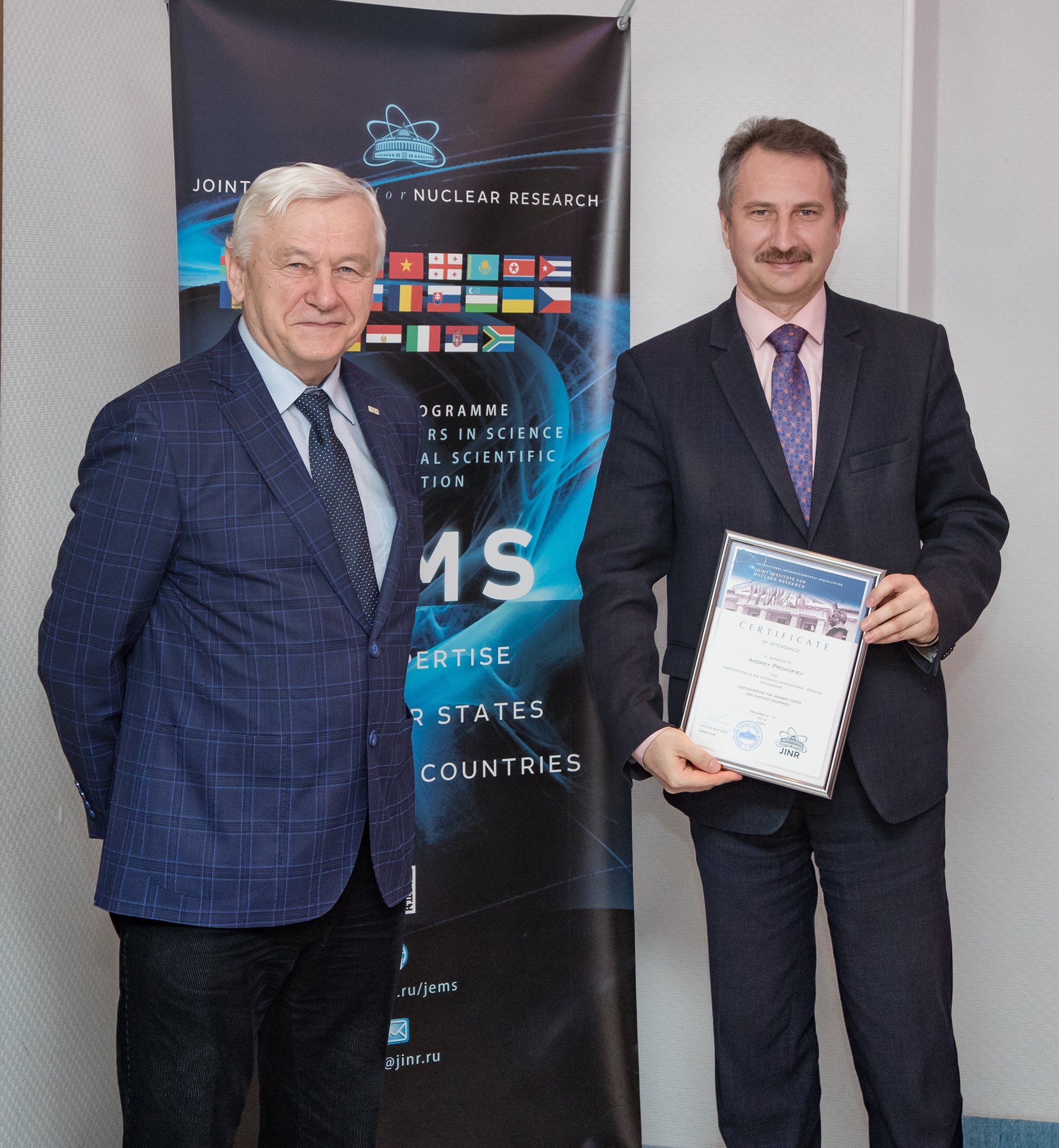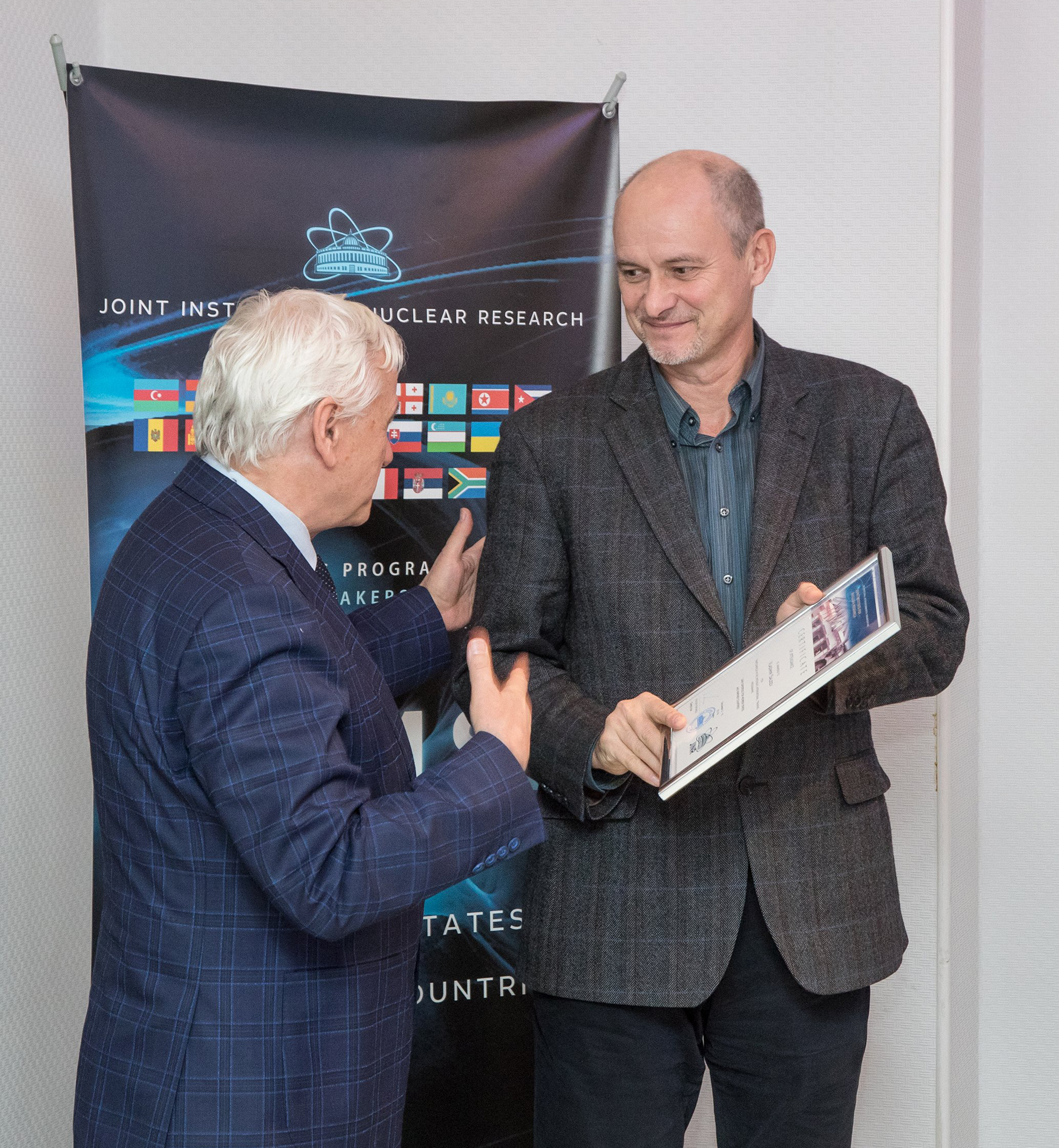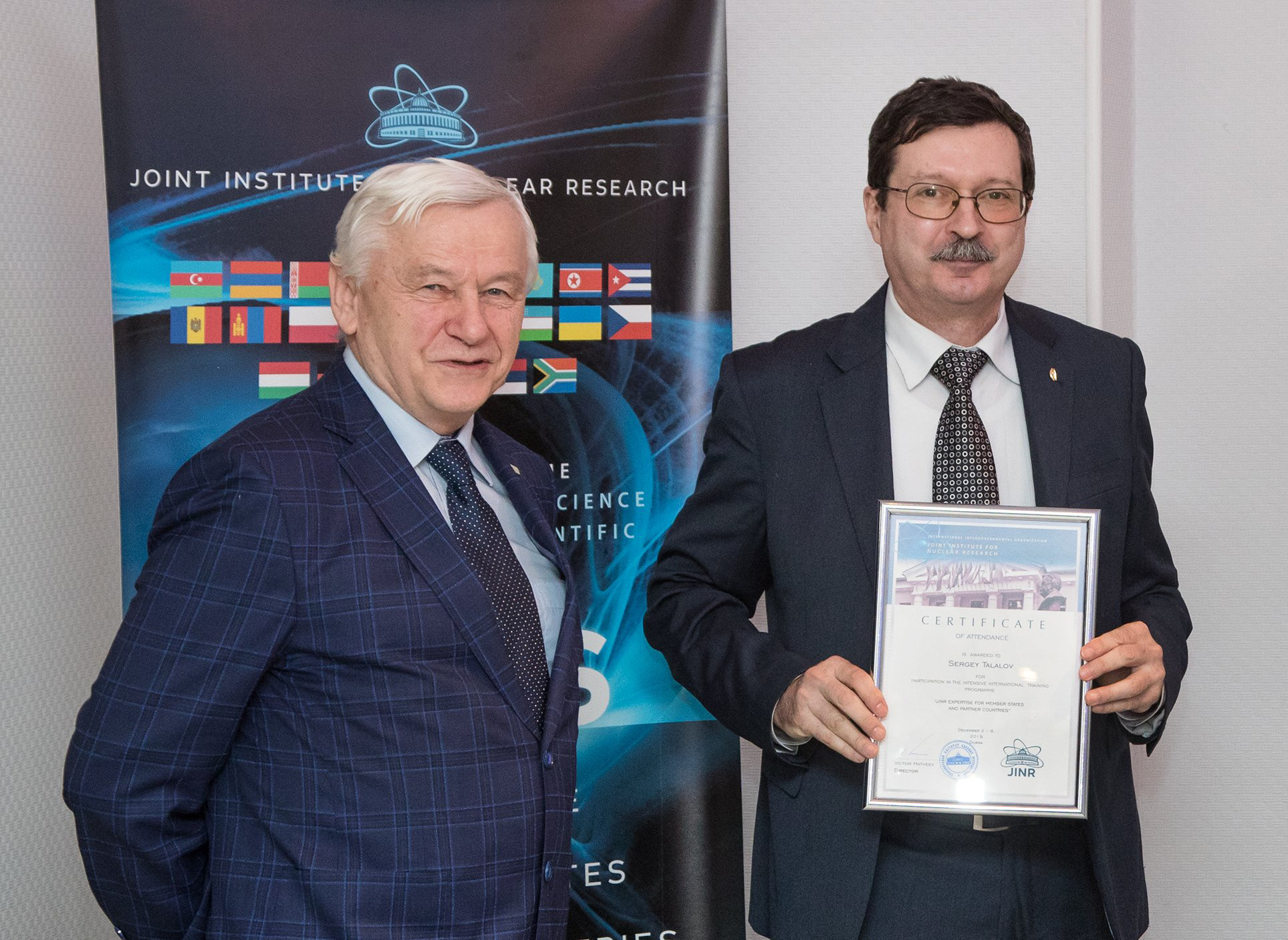Milestones of JEMS-14 shaped prospects for cooperation in the educational field
News, 20 December 2019
On 6 December 2019, the 14th International training programme «JINR Expertise for Member States and Partner Countries» (JEMS-14) was concluded.
Launched on 2 December, the JEMS-14 training programme gathered representatives of scientific and educational institutions of Belarus, Bulgaria, and Russia. As a rule, the working language of JEMS training programmes is English. However, all the participants of JEMS-14 spoke Russian, so the Russian language was chosen as the working language of the event. Another peculiarity of the past JEMS was that the agenda was focused on the Institute’s educational opportunities. Thus, in addition to the traditional programme of JEMS including a multifaceted acquaintance with the JINR activities and visits to the laboratories, the round table “Mega-science at JINR: opportunities for universities” was organized.
A traditional round table summed up the results of JEMS-14. Vice-Director R. Lednický welcomed the participants on behalf of the JINR Directorate and presented certificates on completion of the training programme at the end of the event. Following a tradition, the participants shared their impressions of the week spent at JINR in the alphabetic order of the countries they came from.
Roman Shulyakovsky, Director of the Research Institute of Applied Physics of the National Academy of Sciences of Belarus: “It is not the first year I have been cooperating with JINR, but now, in the frames of this visit, I have learned numerous new things. In particular, I was impressed by the Laboratory of Neutron Physics, and now a new task is set, namely the standard of mechanical strain based on neutron diffraction. Our contacts in the field of the SPD experiment will be continued in which Belarus and our institute, in particular, may take part in the statement of the physics goals, as well as in solving the tasks of modelling and detector design. The training programme was perfectly organized, and I even do not know what could be improved in it. I wish our scientific youth had an opportunity to see the JINR scientific infrastructure with which we were acquainted in the framework of this training programme.”
Alexander Lobko, Deputy Director for Science, the Research Institute for Nuclear Problems of the Belarusian State University (INP BSU): “Our Institute is the closest partner of JINR in Belarus, and our Director S. A. Maksimenko is a member of the JINR Scientific Council. I am not a newcomer in science and I have visited numerous places. However, I was deeply impressed by what I had seen here. The organization of the training programme is ideal. It was interesting for me to learn how proton therapy is organized. It is generally agreed in Belarus that there is no need in the proton therapy and that it is not necessary to develop this field in the country. Information acquired at JINR showed me that it is necessary to study this issue in greater detail, and we should reconsider our stand on it. A part of the programme devoted to the educational field was very impressing. We actively train the personnel for the atomic power station being constructed now, which is planned to be put into operation in two years. We have developed a portal for nuclear knowledge, so there are opportunities for cooperation and the creation of synergy in the field. I hope that more experienced colleagues from JINR will give us advice on the further development of this field. Moreover, I would like to note the opportunities opened by your engineering workshop. I especially like the vacuum stand because I have not seen training facilities like this anywhere. Now, we are going to design a similar stand at our Institute. I have seen numerous fascinating things, so I estimate my visit to JINR as “Above expatiations!”
Nikolay Dolchinkov, Vasil Levski National Military University, Bulgaria: “We are now facing the challenge to get rid of the deficit of highly-qualified personnel for both, the operating Bulgarian nuclear power plant “Kozloduy” and the second plant “Belene” that is under construction now. We have seen many fascinating things at this training programme; we had useful meetings with specialists and established contacts. We even came up with the idea for a joint project. I was deeply interested in the opportunities of your educational portal edu.jinr.ru. We are going to use courses in nuclear physics and radiation safety. We also discussed an opportunity to send our students for the practice at JINR. Nowadays, much more is known in Bulgaria about JINR opportunities, and we will spread information about the Joint Institute. Now, we have become your big friends.”
Sergey Talalov, Director of the Institute of Mathematics, Physics and Information Technology of the Togliatti State University, Russia: “It is not the first time I am in Dubna, but I have visited only two buildings previously, namely the BLTP and the canteen, so now I was deeply interested to get acquainted with the Institute. At some points, I got a real explosion of emotions. I have learned that JINR has a necessity in engineers, and we actively train such specialists. So, it is a field for cooperation. It is important for us to evoke the interest in physics among the youth, starting from the school stage of education. There is also a field on the creation of modern online courses in physics. In this regard, our experience and your forefront achievements are very important to us. We will enhance cooperation with the JINR University Centre in these areas.”
The issue of the necessity to spread information about JINR was touched upon several times at the round table. In this regard, the guests were introduced to the results of work of the first JINR Information Centre in Vladikavkaz and it is worth mentioning that it helped several participants to take part in the 14th JEMS training programme.
Konstantin Erin, Head of the Department of Science and Technology of the North-Caucasus Federal University, Russia: “I had several tasks to solve when I accepted the invitation of the JINR IC in Vladikavkaz to take part in the JEMS training programme. I am a member of the working group of the Presidential Council for Science and Education engaged in the issues of the development of the scientific infrastructure. One of the tasks of the group was to examine and approve the activities on the implementation of the NICA complex. When I was collecting information, I decided that it is better to see everything with my own eyes and use the chance to come and listen to the people working at the complex. I should say that everything I saw here went beyond all my expectations. It is a true mega-science because there is a unique facility, and dozens of countries all over the world are interested in it. I think that the Presidential Council will receive excellent recommendations concerning the implementation of this project. My second aim was to discuss the development of scientific cooperation with FLNP in the fields of neutron scattering. I was deeply impressed by the technical equipment of the Laboratory; the level of research is very interesting. It was unexpected to find out that such an academic institute conducting fundamental research has such a strong educational direction of activities and a high-level approach to educational programmes with the use of modern informational technologies. JINR educational programmes will be very useful for the implementation of our project “RAS basic schools”. Moreover, the fact that they are held in English will motivate our schoolchildren even stronger.”
Gulnara Kardashova, Head of the scientific division “Microelectronics and nanotechnologies” of the Dagestan State University, Russia: “I have visited Moscow for four years to take part in scientific events dedicated to the fields of our research. However, four days spent here were enough to advance my work thanks to the meeting with specialists in relevant areas. I have also come here upon the recommendation of the JINR Information Centre in Vladikavkaz. I leave Dubna not only with a bundle of knowledge but also with overwhelming emotions: you were born to make a dream come true. When I come back, I will share information about everything I have seen here with the leadership. Our scientific youth does not know how to apply acquired knowledge in the future, and now I will point to JINR.”
Concluding the round table, representatives of Russia from Samara National Research University (Samara University) shared their impressions and plans. Andrey Prokofiev, Vice-Rector for R&D: “Nowadays, Samara University actively advances, and its Faculty of Physics should be also developed equally with other faculties. However, Samara is now focused on the aerospace industry, so it is not easy to explain to young people why they should choose physics as their profession. We have historical contacts with Dubna; our students come here for practice, and we will enhance this area of cooperation maybe with students of the Faculty of Electronics and mechanic engineers. This will be perfect career guidance for high-school graduates. Thus, they will understand why they need to enter the Faculty of Physics. In addition, there is a relevant story of success: as you know, Chairman of the AYSS Committee of JINR Alexander Verkheev is our alumni. We hold Career Days, and we agreed to organize meetings of school graduates and JINR representatives in the frames of which. Speaking of the level of the JEMS organization, I wanted to say that it was well-managed, just like the army. But then I realized that military men have much more faults than the JEMS organizers.”
Vladimir Saleev, Professor at the Faculty of Physics: “We have long-lasting contacts with the Laboratory of Theoretical Physics JINR. Now this cooperation enhances in the fields of the mega-science project NICA. Furthermore, we came up with the idea to use also the computing centre and the supercomputer of our university to process the data obtained at NICA and modelling. Moreover, there is an idea to adopt the experience of using Grid technology. We would like to shift from one-time visits of our students to wider cooperation, and we have agreed that 3-grade students from the Department of Theoretical Physics will come to DLNP in the upcoming summer for the on-the-job training programme. We are also interested in the neutrino field in which we have established contacts with DLNP Deputy Director Dmitry Naumov. We agreed with him and UC Deputy Director Alexey Zhemchugov to organize a visit to our Career Day and Doors Open Day of the Faculty of Physics to address to school graduates.”
Kristina Moisenz
Photos by Igor Lapenko
